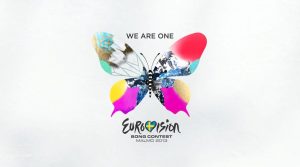Read all of the OnEurope coverage from Eurovision 2013
 The Eurovision Song Contest 2013 was the 58th edition of the annual Eurovision Song Contest. It took place in Malmö, Sweden, following Loreen’s win at the 2012 contest in Baku, Azerbaijan with the song “Euphoria”. It was the fifth time that Sweden had hosted the contest, the last time being in 2000. Sveriges Television (SVT) chose Malmö Arena as the venue following the consideration of several venues in Sweden. The host for the contest was Petra Mede. Thirty-nine countries participated, including Armenia, which was last represented in 2011. Bosnia and Herzegovina, Portugal, Slovakia and Turkey announced their withdrawal from the 2013 Contest.
The Eurovision Song Contest 2013 was the 58th edition of the annual Eurovision Song Contest. It took place in Malmö, Sweden, following Loreen’s win at the 2012 contest in Baku, Azerbaijan with the song “Euphoria”. It was the fifth time that Sweden had hosted the contest, the last time being in 2000. Sveriges Television (SVT) chose Malmö Arena as the venue following the consideration of several venues in Sweden. The host for the contest was Petra Mede. Thirty-nine countries participated, including Armenia, which was last represented in 2011. Bosnia and Herzegovina, Portugal, Slovakia and Turkey announced their withdrawal from the 2013 Contest.
The design of the contest was built around the theme “We Are One” – highlighting equality and unity of all the participating countries alongside the cultural diversity and influence of each participant. Compared to many of the previous contests in the history of Eurovision, rather than focusing on promoting its own country, Sweden chose to lay focus on the artists and their respective countries. The postcards presented before every song which have often been used to show the host country’s nature, culture and social life, were changed to show the typical everyday life of each individual artist in their home countries scattered around Europe.
The winner for 2013 was Denmark with the song “Only Teardrops” sung by Emmelie de Forest, which scored 281 points, beating Azerbaijan with a margin of 47 points. This makes it the second time that Denmark won on Swedish soil. Ukraine finished in third place and Norway in fourth, while Russia finished in fifth place. Out of the countries with the ‘Big Five’ status, only Italy managed to finish in the top ten, coming seventh with 126 points, exactly double of remaining ones’ sum. The Netherlands finished ninth in their first participation in a final since 2004. 170 million viewers watched the semifinals and final of the 2013 edition. For the first time since 1985, no country of the former Yugoslav federation participated in the final of the Eurovision Song Contest.
This year was the first time adult Eurovision displayed the “Parade of Nations”, which already existed in Junior Eurovision since 2004, an idea introduced by Sweden to become a new Eurovision tradition. The concept sees all countries performing in the Grand Final present themselves with their national flags before the contest begins. This year, the contestants entered the main stage by walking across a bridge over the audience. The idea was continued the following years by Denmark and Austria, the hosts of Eurovision 2014 and 2015 respectively.
(From Wikipedia)


